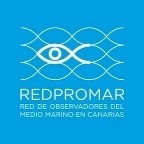
Spotted an angel shark? Share your sighting on the Angel Shark Sightings Map! Your
sightings help our Partners and Collaborators l to better understand and conserve angel
sharks. Thanks for being part of the effort!
To report your angel shark sighting:
The angel shark family is the third most threatened of all the world’s sharks and rays. There are currently 24 described species in the family Squatinidae. Many of these species have overlapping ranges and similarities in morphology, causing some confusion in species identification. To help improve accuracy of species identification and reporting The Shark Trust has developed a guide to angel shark identification.
Of the 24 described species, 13 are now listed in a threat category on the IUCN Red List of Threatened Species (8 Critically Endangered, 4 Endangered and 1 Vulnerable), while others remain Data Deficient or Not Evaluated.
There is hope! Thanks to reports to this sightings map, several areas have been identified as a unique stronghold for some species. Help us to better understand and conserve these species by reporting your angel shark sighting to the map.
Find out more about angel shark research and conservation at www.angelsharknetwork.com.

Count The Angels is an annual event created to promote the conservation of the Angelshark in the Canary Islands. The Count the Angels data, alongside regular sightings submitted to the map and visual ID tagging data, help us to understand the ecology and abundance of this iconic species.
Count The Angels is completed over three days, to coordinate divers across the Canary Islands to dive at the same time to search for angelsharks.

The following organisations are Partners or Collaborators of the Angel Shark Sightings Map and will receive your sightings data. The data will be used by each organisation to better understand and conserve Angel Sharks in their area of interest.
Please email us if you would like to become a Partner or Collaborator.
The Angel Shark Sightings Map was developed by Octophin Digital for the Zoological Society of London as part of the Angel Shark Project. It was funded by Disney Conservation Fund, Mohamed Bin Zayed Species Conservation Fund, Save Our Seas Foundation, Shark Conservation Fund and The Biodiversity Consultancy.





Bathymetry data is provided via: EMODnet Bathymetry Consortium (2018). EMODnet Digital Bathymetry (DTM 2018). EMODnet Bathymetry Consortium. https://doi.org/10.12770/18ff0d48-b203-4a65-94a9-5fd8b0ec35f6